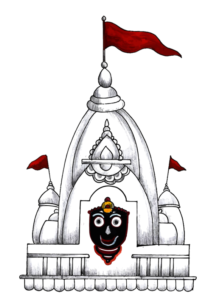
Unveiling the Mystique
Kaleshwaram Mandir
Also Known as Kaleshwara Mukteswara Swamy Temple
Introduction :
Kaleshwaram, nestled in the heart of Telangana, India, is a land of spiritual enchantment. This sacred town is home to the Kaleshwara Mukteswara Swamy Temple, a place of profound religious significance for Hindus. It is here that Lord Shiva’s divine presence is invoked through two awe-inspiring Shiva Lingas, known as Kaleshwara Mukteswara Swamy. This temple is not merely a place of worship; it is a testament to the spiritual heritage and the intrinsic bond between life, death, and liberation.
Deity of Kaleshwaram :
The central deity of the Kaleshwara Mukteswara Swamy Temple is Lord Shiva, the supreme god in Hinduism. However, what makes this temple exceptional is that it houses two Shiva Lingas on a single pedestal. These unique Lingas are lovingly named Lord Shiva and Lord Yama. Together, they are known as Kaleshwara Mukteswara Swamy, embodying a divine duality – the lord of creation and the lord of death.
Kaleshwaram finds itself prominently featured in the sacred realm known as Trilinga Desham, which translates to the “Land of Three Lingas.” This title underlines its religious significance, not just locally but also across the Indian subcontinent.
Pilgrimage and Rituals :
Kaleshwaram attracts pilgrims and devotees throughout the year. However, it witnesses a surge in visitors during the auspicious Karthika Month of the Indian Calendar, which usually spans from 16th November to 15th December. The temple precincts come alive with sacred fervor during the holy baths conducted from 6th to 17th December.
Pilgrims embark on a soul-cleansing journey by following a prescribed ritual. They begin by paying their respects to Lord Ganesha, the remover of obstacles. This is followed by offerings and prayers to Lord Yama, the god of death, and finally, the ultimate veneration of Lord Shiva.
Darshan Timings :
The Kaleshwara Mukteswara Swamy Temple opens its doors for the faithful from early morning to late evening. Devotees can seek the divine blessings from 4:00 a.m. to 1:00 p.m. and then from 3:30 p.m. to 8:00 p.m. This generous time frame allows pilgrims to immerse themselves in the spiritual ambience of the temple.
Laksha Bilwapatri Pooja :
A unique feature of this temple is the Laksha Bilwapatri Pooja, a special offering to Lord Shiva. Devotees who wish to perform this ritual need to make a request to the Dewasthanam officials at least one month in advance. This elaborate and exclusive ceremony adds an extra layer of sanctity to the temple’s spiritual tapestry.
Prasadam :
No temple visit is complete without the partaking of prasadam, a sacred offering. Inside the Kaleshwara Mukteswara Swamy Temple, pilgrims can savor two delectable prasadams – Pulihora (Tamarind rice) and Laddu (sweet). These divine treats not only satiate the palate but also nourish the soul.
Spiritual Significance :
Kaleshwaram is revered not only for its religious sanctity but also for its role in after-death rituals. It is considered by many as the “second Kashi” in India. Kashi, also known as Varanasi, is one of the holiest cities in Hinduism, where death is believed to lead to moksha or liberation. Kaleshwaram, with its spiritual aura and unique Shiva Lingas, is a place where the living can connect with the divine and the departed find solace in their onward journey.
Conclusion :
The Kaleshwara Mukteswara Swamy Temple stands as a testament to the profound spirituality and rich heritage of Telangana. It is a place where the divine duality of life and death converges, allowing devotees to experience the cycle of existence in its entirety. With its unique rituals, divine prasadam, and spiritual significance, Kaleshwaram beckons the faithful, offering them a glimpse of the eternal truth that transcends human existence.
Editor – Kaalchakra Team
[ Note – Before Concluding anything as a Finale, Please Go through Original Scriptures of Vaidik Literature Written in Sanskrit and Also with Meaning of That time of Language. Because English is a Limited language to Explaining the Deeper Knowledge of Vaidik Kaal. ]
